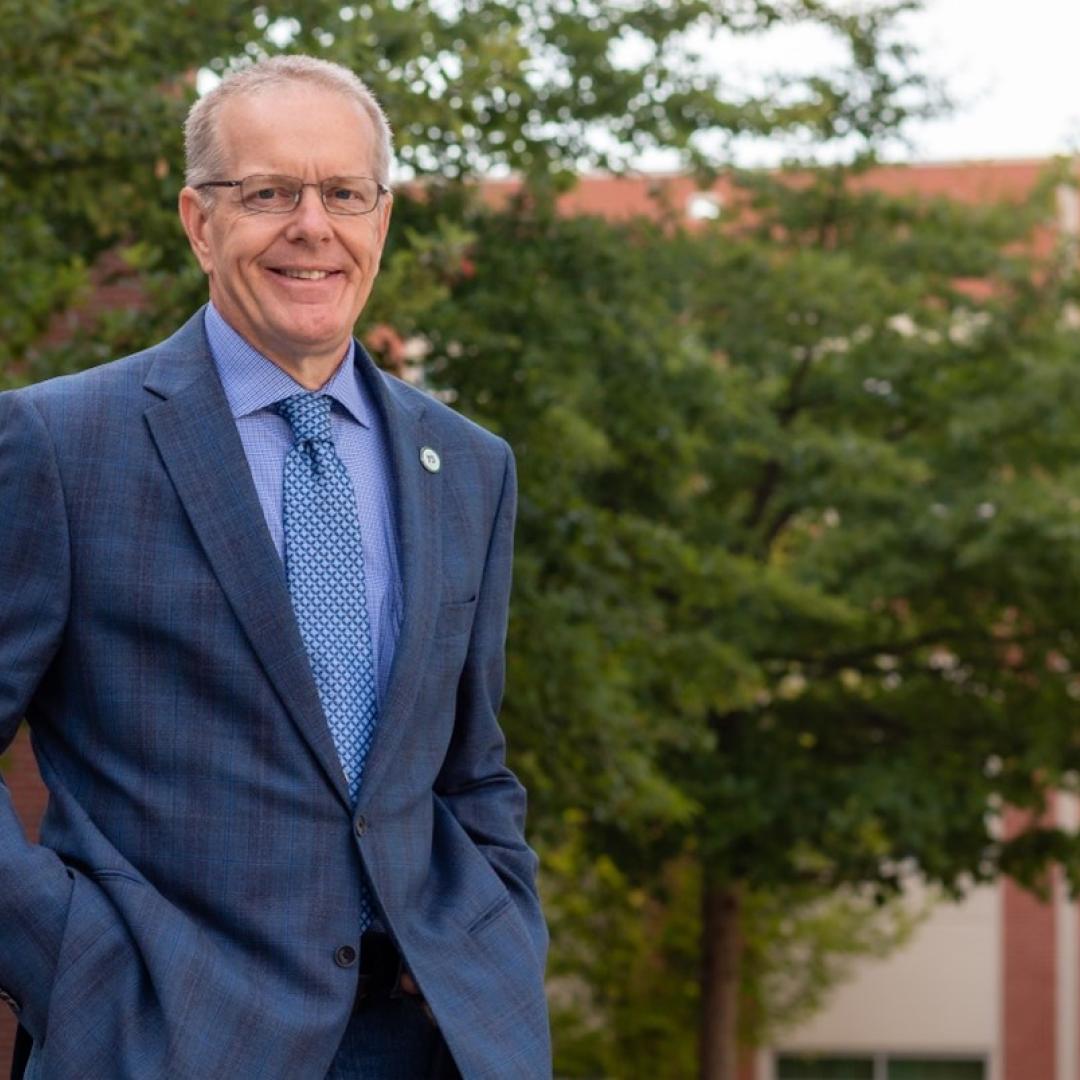
Filter News
Area of Research
News Type
News Topics
- (-) Partnerships (21)
- (-) Physics (34)
- 3-D Printing/Advanced Manufacturing (56)
- Advanced Reactors (13)
- Artificial Intelligence (54)
- Big Data (27)
- Bioenergy (57)
- Biology (65)
- Biomedical (32)
- Biotechnology (11)
- Buildings (24)
- Chemical Sciences (35)
- Clean Water (14)
- Climate Change (56)
- Composites (10)
- Computer Science (98)
- Coronavirus (21)
- Critical Materials (3)
- Cybersecurity (20)
- Decarbonization (49)
- Education (1)
- Emergency (2)
- Energy Storage (44)
- Environment (117)
- Exascale Computing (27)
- Fossil Energy (4)
- Frontier (27)
- Fusion (38)
- Grid (26)
- High-Performance Computing (54)
- Hydropower (5)
- Irradiation (1)
- Isotopes (35)
- ITER (3)
- Machine Learning (24)
- Materials (74)
- Materials Science (65)
- Mathematics (6)
- Mercury (7)
- Microelectronics (2)
- Microscopy (28)
- Molten Salt (2)
- Nanotechnology (28)
- National Security (42)
- Net Zero (9)
- Neutron Science (59)
- Nuclear Energy (67)
- Polymers (13)
- Quantum Computing (22)
- Quantum Science (34)
- Renewable Energy (1)
- Security (14)
- Simulation (34)
- Software (1)
- Space Exploration (13)
- Statistics (1)
- Summit (32)
- Sustainable Energy (52)
- Transformational Challenge Reactor (4)
- Transportation (37)
Media Contacts
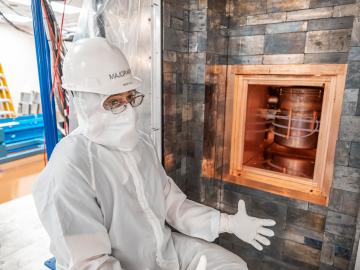
For nearly six years, the Majorana Demonstrator quietly listened to the universe. Nearly a mile underground at the Sanford Underground Research Facility, or SURF, in Lead, South Dakota, the experiment collected data that could answer one of the most perplexing questions in physics: Why is the universe filled with something instead of nothing?

A partnership of ORNL, the Tennessee Department of Economic and Community Development, the Community Reuse Organization of East Tennessee and TVA that aims to attract nuclear energy-related firms to Oak Ridge has been recognized with a state and local economic development award from the Federal Laboratory Consortium.
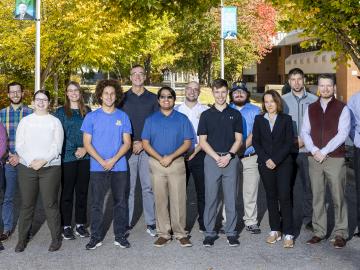
Nine student physicists and engineers from the #1-ranked Nuclear Engineering and Radiological Sciences Program at the University of Michigan, or UM, attended a scintillation detector workshop at Oak Ridge National Laboratory Oct. 10-13.
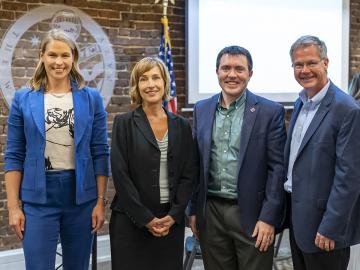
A crowd of investors and supporters turned out for last week’s Innovation Crossroads Showcase at the Knoxville Chamber as part of Innov865 Week. Sponsored by ORNL and the Tennessee Advanced Energy Business Council, the event celebrated deep-tech entrepreneurs and the Oak Ridge Corridor as a growing energy innovation hub for the nation.
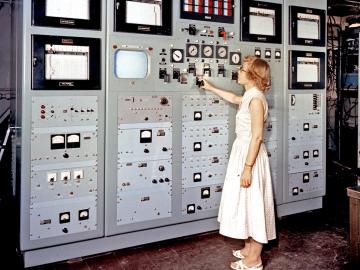
Oak Ridge National Laboratory physicist Elizabeth “Libby” Johnson (1921-1996), one of the world’s first nuclear reactor operators, standardized the field of criticality safety with peers from ORNL and Los Alamos National Laboratory.
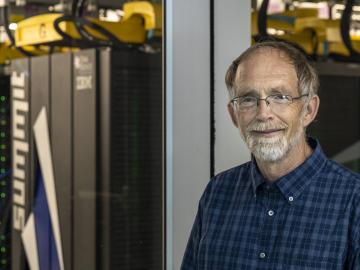
ORNL Corporate Fellow and Center for Nanophase Materials Sciences researcher Bobby Sumpter has been named fellow of two scientific professional societies: the Institute of Physics and the International Association of Advanced Materials.
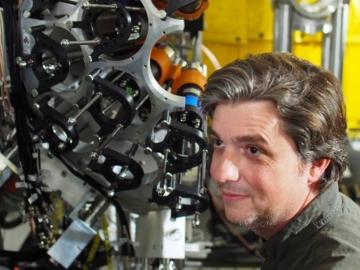
Two decades in the making, a new flagship facility for nuclear physics opened on May 2, and scientists from the Department of Energy’s Oak Ridge National Laboratory have a hand in 10 of its first 34 experiments.
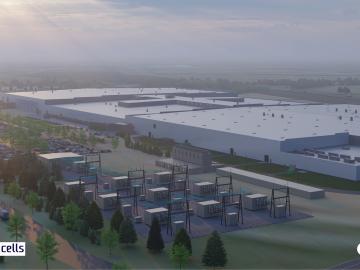
ORNL, TVA and TNECD were recognized by the Federal Laboratory Consortium for their impactful partnership that resulted in a record $2.3 billion investment by Ultium Cells, a General Motors and LG Energy Solution joint venture, to build a battery cell manufacturing plant in Spring Hill, Tennessee.
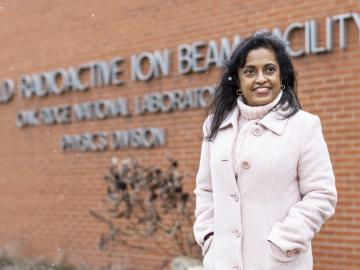
Nuclear physicist Caroline Nesaraja of the Department of Energy’s Oak Ridge National Laboratory evaluates nuclear data vital to applied and basic sciences.
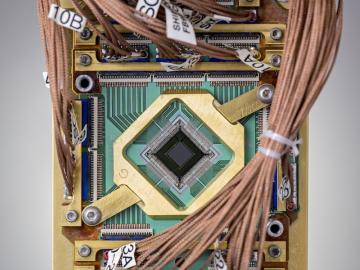
Since the 1930s, scientists have been using particle accelerators to gain insights into the structure of matter and the laws of physics that govern our world.


